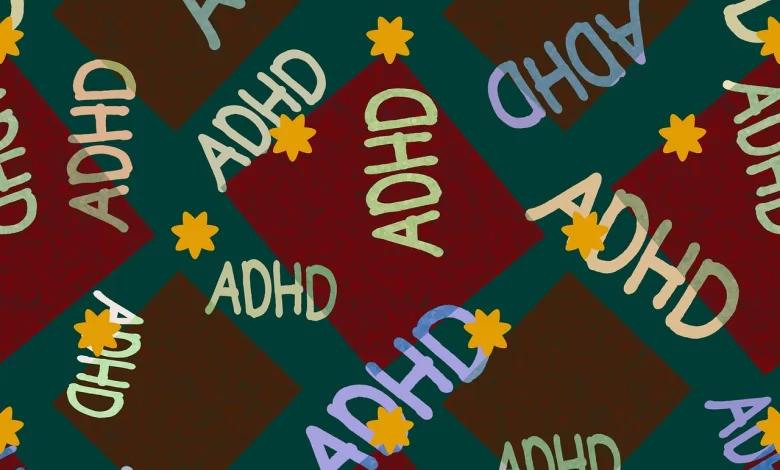8 Telltale Signs of Adult ADHD

Adult attention-deficit/hyperactivity disorder (ADHD) is a neurodevelopmental disorder characterized by persistent patterns of inattention, hyperactivity, and impulsivity that can significantly impact daily functioning. While ADHD is commonly associated with children, it can persist into adulthood.
The prevalence of adult ADHD varies across studies and populations, but it is estimated that approximately 2-5% of adults worldwide have ADHD. However, it’s important to note that ADHD is often underdiagnosed and underrecognized in adults, so the actual prevalence may be higher. Some individuals may receive a diagnosis during childhood and continue to experience symptoms as adults, while others may receive a diagnosis for the first time in adulthood. There are also cases where ADHD symptoms may be present but not recognized until later in life.
The prevalence of ADHD in adults can differ based on various factors, such as the diagnostic criteria used, the specific population being studied, and cultural or societal influences. Additionally, ADHD can present differently in adults compared to children, which may contribute to underdiagnosis or misdiagnosis.
Diagnosing adult ADHD typically involves a comprehensive evaluation by a mental health professional or healthcare provider. They will assess symptoms, rule out other possible causes, and consider the individual’s history and impairments in various areas of life. The diagnostic criteria are outlined in the Diagnostic and Statistical Manual of Mental Disorders (DSM-5).
Telltale Symptoms of Adult ADHD
Adults with ADHD may exhibit various symptoms that can significantly impact their daily lives. Here are some telltale symptoms of adult ADHD:
1. Inattention: Adults with ADHD may have difficulty sustaining attention and focusing on tasks. They may become easily distracted, have trouble staying organized, and frequently lose or misplace important items. They may also struggle to follow through on instructions or complete tasks that require sustained mental effort.
2. Hyperactivity: While hyperactivity tends to decrease in adulthood, some individuals with ADHD may still experience restlessness, fidgeting, or a constant need to keep moving. They may feel internally restless or find it challenging to engage in activities that require sitting still for extended periods.
3. Impulsivity: Adults with ADHD may act impulsively without considering the consequences. They may have difficulty inhibiting their immediate responses, leading to blurting out thoughts, interrupting others during conversations, or engaging in risky behaviors.
4. Poor time management: Adults with ADHD often struggle with managing their time effectively. They may underestimate the time required to complete tasks, leading to procrastination or missed deadlines. They may also have difficulty prioritizing activities and maintaining a consistent routine.
5. Organization difficulties: Maintaining organization can be challenging for adults with ADHD. They may struggle to keep their personal or workspaces tidy, have difficulty finding necessary items, or frequently forget appointments and commitments.
6. Impaired memory: Adults with ADHD may experience problems with working memory, which can affect their ability to remember and recall information. They may forget important details, such as conversations or instructions, and have difficulty following multi-step directions.
7. Emotional dysregulation: Emotional fluctuations are common among adults with ADHD. They may experience heightened emotional sensitivity, mood swings, irritability, or difficulty managing frustration or anger.
8. Relationship and employment difficulties: The symptoms of ADHD can strain relationships and work performance. Adults with ADHD may have challenges in maintaining stable relationships, meeting responsibilities, and maintaining consistent employment due to issues with attention, organization, and impulsivity.
It’s important to note that the presence of these symptoms does not necessarily indicate ADHD, as they can be caused by other conditions or life circumstances. A comprehensive evaluation by a healthcare professional or mental health provider is necessary to diagnose adult ADHD accurately.
Treatment for adult ADHD
Treatment for adult ADHD often involves a multimodal approach combining various strategies:
1. Psychoeducation: Learning about ADHD and its impact can help individuals better understand their symptoms and develop effective coping strategies.
2. Medication: Stimulant medications (such as methylphenidate or amphetamines) or non-stimulant medications (like atomoxetine or bupropion) may be prescribed to help manage symptoms. The choice of medication depends on individual needs and considerations.
3. Psychotherapy: Cognitive-behavioral therapy (CBT) and other forms of psychotherapy can help individuals develop strategies to improve organization, time management, and coping skills. It can also address any associated emotional difficulties or low self-esteem.
4. Behavioral interventions: Structured routines, environmental modifications, and strategies to enhance organization and time management can be beneficial. Additionally, techniques like self-monitoring, prioritizing tasks, and breaking them down into smaller, manageable steps can improve productivity.
5. Support groups: Joining support groups or seeking peer support can provide a sense of community and understanding, allowing individuals to share experiences and learn from others facing similar challenges.
It’s important to consult with a healthcare professional or mental health provider for a comprehensive evaluation and personalized treatment plan if you suspect you have adult ADHD. They can offer guidance, support, and appropriate interventions to help manage symptoms and improve overall functioning.





